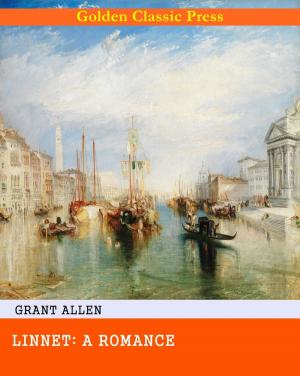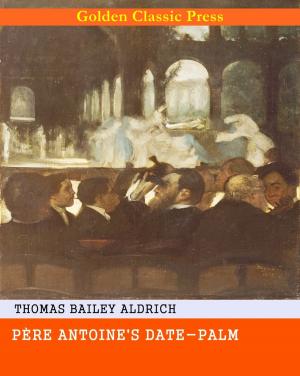Historic Tales: The Romance of Reality - King Arthur
Fiction & Literature, Classics, Historical, Romance, Contemporary| Author: | Sir Thomas Malory | ISBN: | 1230002952895 |
| Publisher: | GOLDEN CLASSIC PRESS | Publication: | November 30, 2018 |
| Imprint: | Language: | English |
| Author: | Sir Thomas Malory |
| ISBN: | 1230002952895 |
| Publisher: | GOLDEN CLASSIC PRESS |
| Publication: | November 30, 2018 |
| Imprint: | |
| Language: | English |
*** Original and Unabridged Content. Made available by GOLDEN CLASSIC PRESS***
Synopsis:
Sir Thomas Malory, (flourished c. 1470), English writer whose identity remains uncertain but whose name is famous as that of the author of Le Morte Darthur, the first prose account in English of the rise and fall of the legendary king Arthur and the fellowship of the Round Table.
Even in the 16th century Malory’s identity was unknown, although there was a tradition that he was a Welshman. In the colophon to Le Morte Darthur the author, calling himself “Syr Thomas Maleore knyght,” says that he finished the work in the ninth year of the reign of Edward IV (i.e., March 4, 1469–March 3, 1470) and adds a prayer for “good delyueraunce” from prison. The only known knight at this time with a name like Maleore was Thomas Malory of Newbold Revell in the parish of Monks Kirby, Warwickshire. This Malory was jailed on various occasions during the period 1450–60, but it is not recorded that he was in prison about 1470, when the colophon was written.
A “Thomas Malorie (or Malarie), knight” was excluded from four general pardons granted by Edward IV to the Lancastrians in 1468 and 1470. This Malorie, who may have been Malory of Newbold Revell, was probably the author of Le Morte Darthur.
According to Sir William Dugdale’s Antiquities of Warwickshire (1656), Malory of Newbold Revell served in the train of Richard Beauchamp, earl of Warwick, at the siege of Calais (presumably 1436, but possibly 1414); was knight of the shire in 1445; and died on March 14, 1471. He was buried in the Chapel of St. Francis at Grey Friars, near Newgate. (He had been imprisoned in Newgate in 1460.)
Malory completed Le Morte Darthur about 1470; it was printed by William Caxton in 1485. The only extant manuscript that predates Caxton’s edition is in the British Library, London. It retells the adventures of the knights of the Round Table in chronological sequence from the birth of Arthur. Based on French romances, Malory’s account differs from his models in its emphasis on the brotherhood of the knights rather than on courtly love and on the conflicts of loyalty (brought about by the adultery of Lancelot and Guinevere) that finally destroy the fellowship.
*** Original and Unabridged Content. Made available by GOLDEN CLASSIC PRESS***
Synopsis:
Sir Thomas Malory, (flourished c. 1470), English writer whose identity remains uncertain but whose name is famous as that of the author of Le Morte Darthur, the first prose account in English of the rise and fall of the legendary king Arthur and the fellowship of the Round Table.
Even in the 16th century Malory’s identity was unknown, although there was a tradition that he was a Welshman. In the colophon to Le Morte Darthur the author, calling himself “Syr Thomas Maleore knyght,” says that he finished the work in the ninth year of the reign of Edward IV (i.e., March 4, 1469–March 3, 1470) and adds a prayer for “good delyueraunce” from prison. The only known knight at this time with a name like Maleore was Thomas Malory of Newbold Revell in the parish of Monks Kirby, Warwickshire. This Malory was jailed on various occasions during the period 1450–60, but it is not recorded that he was in prison about 1470, when the colophon was written.
A “Thomas Malorie (or Malarie), knight” was excluded from four general pardons granted by Edward IV to the Lancastrians in 1468 and 1470. This Malorie, who may have been Malory of Newbold Revell, was probably the author of Le Morte Darthur.
According to Sir William Dugdale’s Antiquities of Warwickshire (1656), Malory of Newbold Revell served in the train of Richard Beauchamp, earl of Warwick, at the siege of Calais (presumably 1436, but possibly 1414); was knight of the shire in 1445; and died on March 14, 1471. He was buried in the Chapel of St. Francis at Grey Friars, near Newgate. (He had been imprisoned in Newgate in 1460.)
Malory completed Le Morte Darthur about 1470; it was printed by William Caxton in 1485. The only extant manuscript that predates Caxton’s edition is in the British Library, London. It retells the adventures of the knights of the Round Table in chronological sequence from the birth of Arthur. Based on French romances, Malory’s account differs from his models in its emphasis on the brotherhood of the knights rather than on courtly love and on the conflicts of loyalty (brought about by the adultery of Lancelot and Guinevere) that finally destroy the fellowship.















